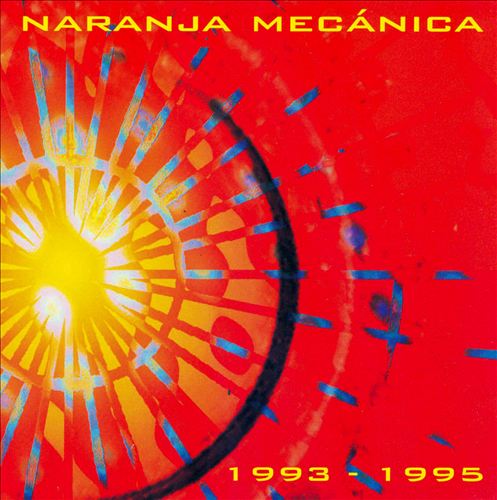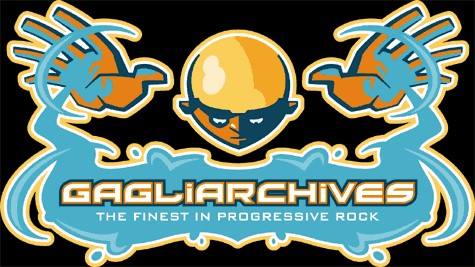Cuban band NARANJA MECANICA was formed in Havana i 1991, and from the tiny bits of information I can find about this group they were mostly active in the 1990’s. Just when or if they disbanded I truly don’t know. “1993 – 1995” is the only album released with this band, and is an archival release of various recordings with the band mostly taped in 1995, supplemented with two recordings made in 1993. The CD was jointly released by Mexican label Luna Negra and French label Musea Records in 2001.
As intriguing as the notion of a progressive rock band based on Cuba is, some expectations to such a venture needs to be dealt with straight away. The major of these is that this isn’t a band that incorporate any major parts of their own musical traditions into their compositions. Some details do appear, but the focus her appears to be progressive rock UK style, and the main references are to the 1970’s rather than later decades.
One if the identity shaping instruments used throughout is the flute, and whenever progressive rock and flute are mentioned in the same sentence, bands like Jethro Tull and Camel tends to be mentioned. In this case both of them have their place. Compositions with a partial foundation in pastoral landscapes fairly similar to some of Tull’s most laid back folk-oriented excursion are recurring elements on this album, and harder edged excursions that makes it easy to think about some of Jethro Tull’s more well know material from albums such as Aqualung is also a fairly common feature on this disc. More in part than in full, but still very much a recurring element. Smooth, elegant and more dreamladen affairs that bring Camel to mind is another facet of Naranja Mecanica’s stylistic expression, with supplemental keyboard features further enhancing that part. Not as common as the more folk-oriented ones previously described but again a recurring feature.
The piano is arguably the main instrument throughout, and when the band isn’t busy exploring the art rock sounds as described above, albeit with guitars sporting a more contemporary and grittier sound I might add, the piano will take the lead into realms of a more jazz oriented nature. Ragtime inspired motifs and inserts as well as wandering piano based improvisational features as standalone sequences or alternating with the guitar or flute or both in that department, more often than not exploring these jazz-oriented tendencies with a rock context or with support by bass or guitar adding rock music based elements to a jazz-oriented sequence. Which spells out jazzrock in my book, at times fairly quirky and intricate in this particular case.
Some Latin flavored elements find their way into this blend too. The lead vocals, when present, a natural provider of associations to cultures of a non-anglosaxon nature obviously, but on occasion Latin rhythms are given room to spice up the proceedings, most times in the jazzrock sequences. Which does add a nice additional flavor to this production.
Mix, production and general recording quality does leave a bit to be desired on this album, and as far as being one of extremely few bands on Cuba exploring progressive rock as a style there’s a surprising lack of identity marks that stamps Naranja Mecanica as a Cuban sounding band. This collection of material is a charming one though, and those fond of early 70’s Jethro Tull and mid to late 70’s Camel should find this album to be an entertaining one. Especially those amongst them with a taste for jazzrock and the odd instance of Latin rhythms.
My rating: 70/100









